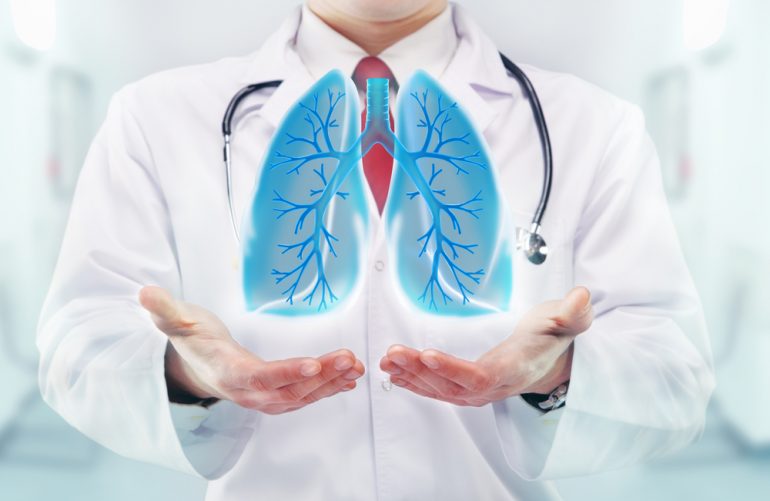How to maintain healthy lungs: Tips from a Pulmonologist
In this article, we’ll explore effective ways to boost lung health and promote a higher quality of life.
Our lungs are important organs. They help our bodies get oxygen and get rid of carbon dioxide, which is a waste product. It’s very important to keep your lungs healthy for your overall health.
To help you know how to take care of your lungs, Dr. Ashok K Rajput, who is a lung specialist at CK Birla Hospital in Delhi explains us to learn about ways to make your lungs healthier and have a better life.
1. DON’T UNDERESTIMATE THE POWER OF EXERCISE
Regular physical activity isn’t just beneficial for cardiovascular health; it also plays a significant role in enhancing lung function. Engaging in aerobic exercises like walking, swimming, and cycling helps increase lung capacity and improves the efficiency of oxygen exchange.
Exercise also strengthens respiratory muscles, making breathing more effective and reducing the risk of respiratory issues.
2. PRIORITISE INDOOR AIR QUALITY
Indoor air quality can have a substantial impact on lung health. Make sure your living and working spaces are well-ventilated and free from pollutants.
Common indoor air pollutants, such as tobacco smoke, mold, dust mites, and volatile organic compounds (VOCs), can irritate the respiratory system and exacerbate conditions like asthma. Using air purifiers and avoiding smoking indoors are essential steps to safeguard your lung health.
3. PRACTICE DEEP BREATHING EXERCISES
Deep breathing exercises promote lung expansion and strengthen the diaphragm, the primary muscle responsible for breathing.
Techniques like diaphragmatic breathing, pursed-lip breathing, and yoga-inspired pranayama can help improve lung function and reduce shortness of breath. These exercises are especially beneficial for individuals with chronic respiratory conditions.
4. STAY HYDRATED
Proper hydration is crucial for maintaining the thin layer of mucus that lines the respiratory tract. This layer helps trap airborne particles and prevents infections. When you’re well-hydrated, your body can effectively produce and maintain this protective mucus layer. Aim to drink plenty of water throughout the day to support optimal lung health.
5. CONSUME A LUNG-FRIENDLY DIET
A balanced diet rich in antioxidants, vitamins, and minerals is essential for lung health. Foods like fruits, vegetables, whole grains, and lean proteins provide nutrients that help reduce inflammation and oxidative stress in the lungs. Omega-3 fatty acids, found in fatty fish like salmon and flaxseeds, have anti-inflammatory properties that can benefit lung health.
6. MAINTAIN A HEALTHY WEIGHT
Being overweight or underweight can impact lung health. Excess weight can compress the lungs and make breathing more challenging, while being underweight may result in decreased respiratory muscle strength.
Strive to maintain a healthy weight through a combination of regular exercise and a well-balanced diet.
7. AVOID RESPIRATORY IRRITANTS
Steer clear of environmental factors that can irritate the respiratory system.
Tobacco smoke is a well-known lung irritant and a leading cause of lung diseases like chronic obstructive pulmonary disease (COPD) and lung cancer. Additionally, exposure to pollutants such as vehicle emissions and industrial fumes should be minimised whenever possible.
8. GET VACCINATED
Vaccinations are essential for preventing infections that can negatively impact lung health. Annual flu shots are recommended to protect against influenza, which can cause severe respiratory complications.
Additionally, staying up-to-date with vaccinations like the pneumococcal vaccine can help prevent certain bacterial infections that affect the lungs.
9. PRACTICE GOOD POSTURE
Believe it or not, your posture can affect your lung function. Slouching compresses the chest cavity and reduces the amount of space available for the lungs to expand. Maintaining good posture—whether sitting, standing, or even sleeping, allows the lungs to work optimally and helps prevent respiratory strain.
10. REGULAR CHECK-UPS WITH A PULMONOLOGIST
Last but not least, scheduling regular check-ups with a pulmonologist is a proactive approach to maintaining lung health. Pulmonologists are specialised doctors who can assess your lung function, provide personalised advice, and detect potential issues early on.
CONCLUSION
Caring for your lungs should be a top priority for a healthier and more fulfilling life.
By incorporating these expert-backed strategies, you can optimise your lung health, reduce the risk of respiratory issues, and enjoy the benefits of improved overall well-being. Remember, small lifestyle changes can lead to significant positive impacts on your lung health in the long run.

